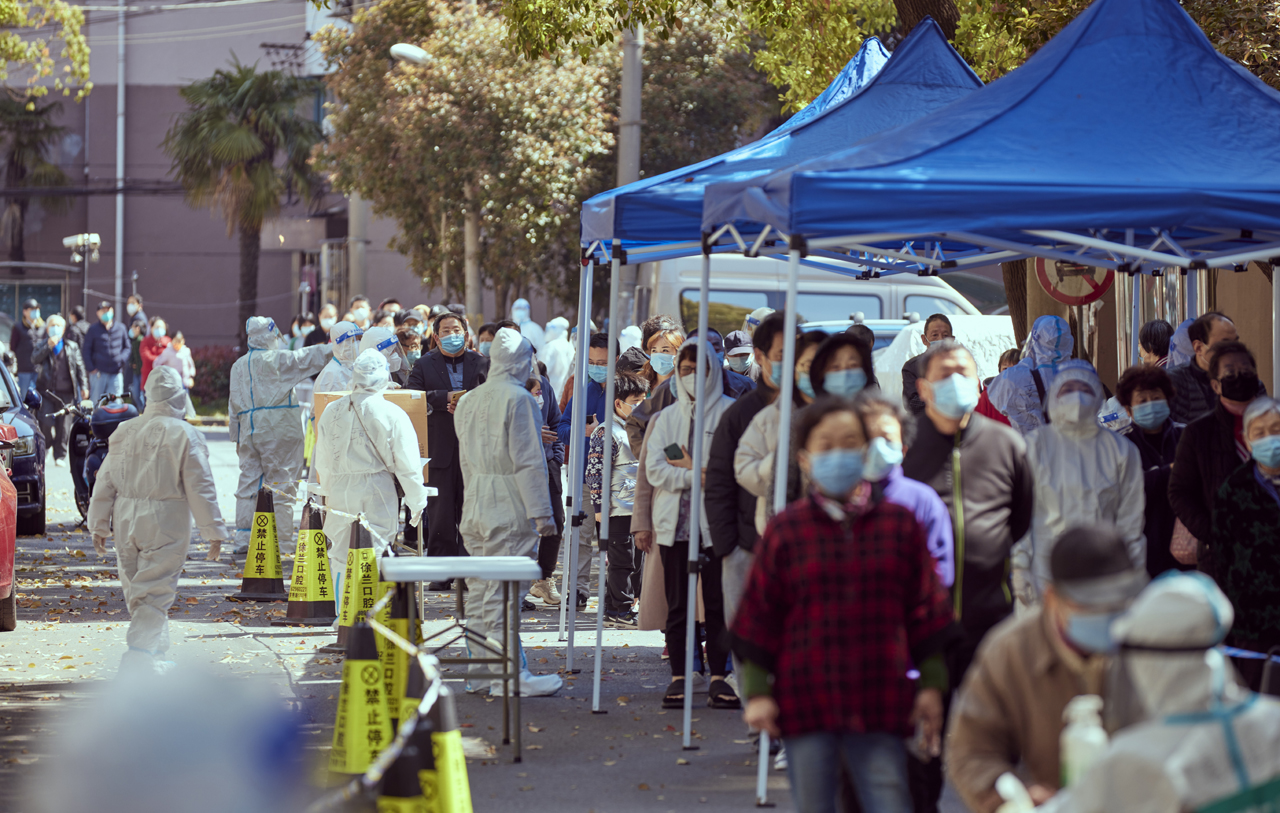As China shifts from its “zero-Covid policy” and eases quarantine rules amid the resurging new virus cases, other countries are on edge.
Amid rising concerns about the possible appearance of new variants, some experts pointed out that the Korean government also should strengthen quarantine by, for instance, mandating PCR tests on Chinese arrivals as Japan and the U.S. did.
According to the Korea Disease Control and Prevention Agency (KDCA) on Wednesday, the share of Chinese arrivals has sharply increased among imported Covid-19 cases.

Last month, the number of people who arrived from Korea totaled 19, accounting for 1.1 percent of the total imported Covid-19 case of 1,750s. However, the number jumped to 253 in the first 27 days of this month, accounting for 14.2 percent 0f the total 1,777.
The detection rate of BF.7 sub-variant now raging in China also rose. BF.7 accounted for 3.8 percent of imported cases in the second week of this month to 5.4 percent in the third week.
Faced with the surge of new Covid-19 cases in China, the Korean government also began to tighten quarantine measures from Dec. 16. For instance, the quarantine authorities lowered the standard temperature subject to Covid-19 tests from 37.5 to 37.3 degrees.
“From Dec. 16, we are conducting whole-genome sequencing (WGS) on all Chinese arrivals,” said Lim Suk-young, who heads the overall situation control. “Since the Chinese government heralded easing entry restrictions, the government is evaluating its impact from various angles.”
Experts also pointed out that the government should enhance quarantine rules temporarily to prepare for the possible influx of confirmed patients from China. They cited the obligation of PCR tests on people who arrive from or via China as an example.
“Currently, the government has lifted the diagnosis mandate after entry, but it must check the infection by conducting PCR tests on people who arrive from or via China temporarily,” said Professor Cheong Jae-hun of the Prevention Medicine Class at Gachon University Gil Medical Center.
Pointing out that it is likelier to find a new variant from Chinese arrivals than to be reported by the Chinese authorities, Professor Cheong also called for conducting a broad range of tests to detect mutant viruses, including genomic sequencing.
“It is more important to identify and share the characteristics of a new variant than to find the mutant virus itself. The authorities must find out how much the new variant avoids immunity, how fast it spreads, by which direction it develops into severe cases, how treatments and vaccines would impact it,” he said. “If Korea becomes the first country to confirm such information, it should also be ready to share them internationally.”
The professor also expressed concerns that the Chinese government is closed to such information sharing.
“There were many contributors to Korea’s preparation for the Omicron variant, and some of them were South African and British researchers. As soon as they detected the Omicron variant, they shared the information with the international community transparently and provided almost all of the information for foreign researchers during yearend holidays and despite time differences,” Cheong said.
The professor added that this is where he is concerned most. “Will the Chinese authorities and researchers share all information transparently as their British and South African counterparts during the Delta and Alpha waves?”

